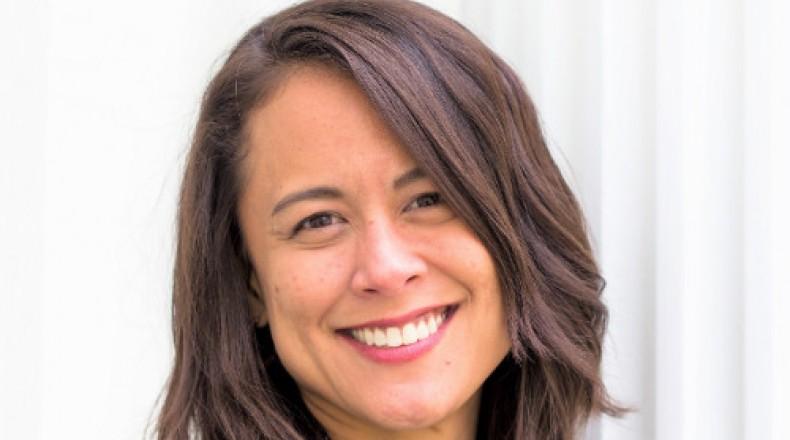AFP WII Summit: Closing the Gender Gap Together (Q&A with Alexis Kanda-Olmstead)

At the AFP Women’s Impact Summit, Oct. 5 – 6, in Phoenix, Ariz., Alexis Kanda-Olmstead will be giving a critical presentation on “Gender Works: Closing the Gender Gap Together.” AFP caught up with Alexis and talked about what the gender gap really means—it’s more than just salaries and leadership positions—and what we can all do to close it.
Alexis is the director of advancement talent management at Dartmouth College where she designs training and professional development programs for 250 staff. She founded AKO Collective, a women's leadership development company that offers training to women and girls and presents nationally on gender-related topics. And, she’s a certified StrengthsQuest Educator, Myers-Briggs Type Indicator (MBTI) Practitioner, and TEDx Speaker.
Q: So, we read your great bio on the AFP WII Summit website. But who are you in your own words?
A: I’m an intellectual with a tender heart and a big laugh.
Q: Your session is “Gender Works: Closing the Gender Gap Together.” What’s the main theme, and what will you be talking about?
A: Being biracial taught me to empathize with those who have privilege and those who do not. My father’s family taught him not to trust white people, while my mother’s side disowned her when she married my father. I loved all of them. Holding this duality is how I grew up.
Similarly, I may be a “woman of color,” but I’m also able-bodied, cisgender, and heterosexual. Reconciling where I have privilege and where I do not, and owning when I am marginalized and when I am oppressive, have been humbling experiences that opened my heart and mind to taking a truly inclusive approach to my social justice work.
It’s from this place that I analyze any issue, so when I started working with women, I wondered, “What about the men?” Marrying a man and giving birth to a son put a fine point on this question. I’ve come to see that gender roles and expectations limit everyone—some much more than others—but ultimately everyone. And until we start talking about that, the conversation is incomplete. So, I took a risk and created this workshop to bring people—women, men, people who identify across and beyond the gender continuum—together to explore, share, understand, and take brave action.
Q: We often talk about the gender gap in terms of pay and senior level positions. But you clearly mean it in a much bigger, broader way. What is the gap to you?
A: It’s a gap in understanding, a gap in empathy. This gap causes us to create stereotypes that limit people. Whether it’s opportunities in the professional or personal sphere, our own self-understanding, or how we interact with our family and the world around us, we are limited by this gap.
Q: Why is it important we close the gap together?
A: I’m an optimistic realist. Successful social movements must include those in power, and in the case of gender, that’s men. There are very good men who want to help but are frustrated or even afraid. We must invite them in, make them feel welcome and safe, and work together to increase our collective understanding and empathy.
Q: You’ve mentioned that we need to have gender work for us rather than against us. What do you mean by that?
A: It’s a natural human tendency to sort and organize people using mental shorthand or stereotypes. In that way, gender works against us. It is used to limit our behaviors and reinforce the behaviors of others. We need to think in more gender-expansive ways, opening up the whole array of human behaviors rather than limiting them. Can I be an assertive woman? Can you be a sensitive man? Can my colleague be an assertive and sensitive gender non-binary human? Yes.
Q: Does the gender gap show up in unique ways in fundraising and the nonprofit sector?
A: The gender gap shows up similarly across industries. Fundraising is a female-dominated profession, but women are underrepresented at the leadership level. This leadership gap happens in other fields where women outnumber men such as education and nursing. One in four female fundraisers has experienced sexual harassment, which mirrors national statistics around this issue.
So, while it doesn’t show up in unique ways necessarily, I think there is a uniqueness as to why we are addressing the gender gap. Nonprofits are fundamentally about helping people, and philanthropy literally means “loving (hu)mankind.” With those humanistic principals as our foundation, I believe we, as a profession, are more willing to do the work.
Q: You recently did a Micro-Learning Video for AFP about “The Confidence Gap” between men and women. How does that play into the gender gap?
A: The confidence gap between men and women exacerbates the gender gap. Let’s take this example: Before applying for a job, women feel like they must meet 100 percent of the qualifications; men 60 percent. It follows that we will have more men than women applying for jobs, advancing their careers, making higher salaries, and leading organizations. This reinforces the existing and well-documented gender gap in pay and senior level positions. There are a number of other forces at play, and I do not want to minimize those. Unconscious bias and discrimination are culprits as well, and we need to be clear about that or we risk blaming women for their own oppression.
Q: What will a participant be surprised about after they have listened to your presentation?
A: They’re going to laugh and have fun! As serious as this interview has been, I’m pretty funny in real life.
Be sure to attend Alexis’s great presentation on “Gender Works: Closing the Gender Gap Together,” and so many others, at the AFP Women’s Impact Summit, Oct. 5 – 6 in Phoenix, Ariz. For more information and to register, click here.

